The Ed's Up - Down under

The birthplace of birdsong
I just arrived home from a magical week in Australia. I flew for 15 hours across an 18-hour time difference, and landed at an earlier time on the same day. I don’t have jetlag. I am jetlag. I am become jetlag, destroyer of sleep. There is no Ed, only jetlag.
Australia’s environment—plentiful sunlight but nutrient-poor soil—allows its plants to readily mass-produce sugars through photosynthesis, but stymies their ability to convert those building blocks into tissues. They end up with a sugar surplus, which they give away as nectar, gum, and other sweet liquids (Wingspan players will know this well). As biologist Tim Low wrote, Australia has “forests that exude energy.” And its birds, by re-evolving the sweet tooth that their dinosaur ancestors had lost, exploited those free-flowing calories, becoming unusually large, bold, vocal, and successful. Some of them, which lived 47 million years ago, gave rise to all the passerines—the branch of the bird family tree upon which two-thirds of all living species perch, including the most familiar ones like sparrows, starlings, swallows, crows, and finches. This dynasty also includes the species colloquially known as songbirds—the ones with the most complex vocal organs and the most beautiful melodies. Australia, then, is the birthplace of birdsong. It’s the site of the dinosaurs’ most recent triumph. And it's a hell of a place to go birding. Liz and I saw 115 species in a week.
But also, I saw a European red fox carrying off an Australasian swamphen chick. I spotted many passerines that are unique to Australasia but were renamed by Europeans with the epithets of foreign counterparts: woodswallows, shrikethrushes, scrubwrens, and robins that are neither closely related to European or American ones. Many birds, including icons like the emu and superb lyrebird, bear the species name novaehollandiae after New Holland, a name once foisted upon the country by the Dutch. I heard the songs of native wattlebirds, whistlers, and fairywrens now interspersed with those of blackbirds, goldfinches, and house sparrows— introduced species that had effectively made a 47-million-year round-trip. Australia’s natural wonders have been thoroughly pockmarked by colonialism. So, too, its people.
I gave a talk in Melbourne on the same day that Australian voters overwhelmingly decided not to give Aboriginal and Torres Straits Islander peoples a constitutional voice in Parliament. (Australia remains one of the only Commonwealth countries that doesn’t have a treaty with its Indigenous people.) The mood among my hosts and other Melburnians whom I talked to, 78 percent of whom voted Yes, was bleak. And after a week of silence, Indigenous groups have now spoken out. One described the result as an “unparalleled act of racism by white Australia” and a sign of a “country that does not know itself”. Another wrote that “the majority of Australians have committed a shameful act whether knowingly or not, and there is nothing positive to be interpreted from it." There is only forward, still, against the currents of recent history, for Australia’s first peoples and its native wildlife.
Wildlife photography
Here's a selection of photos I took while birding in Australia.
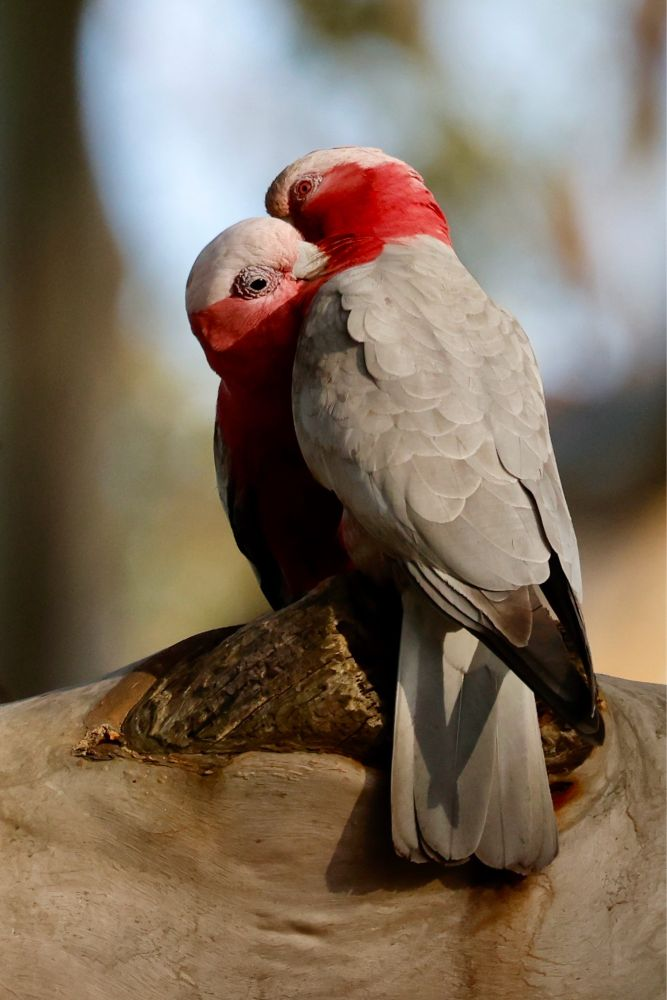
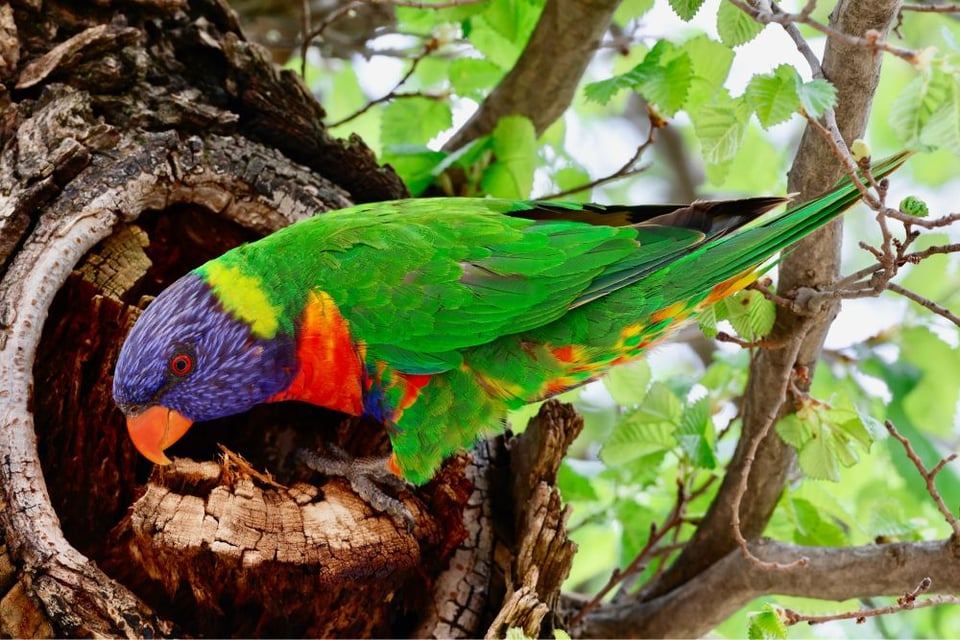
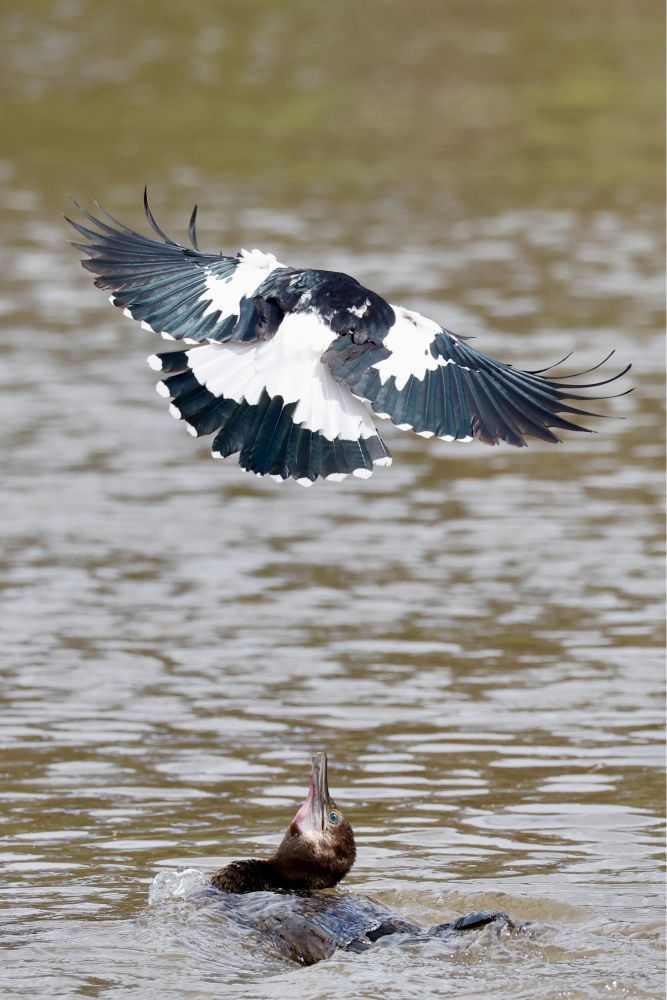
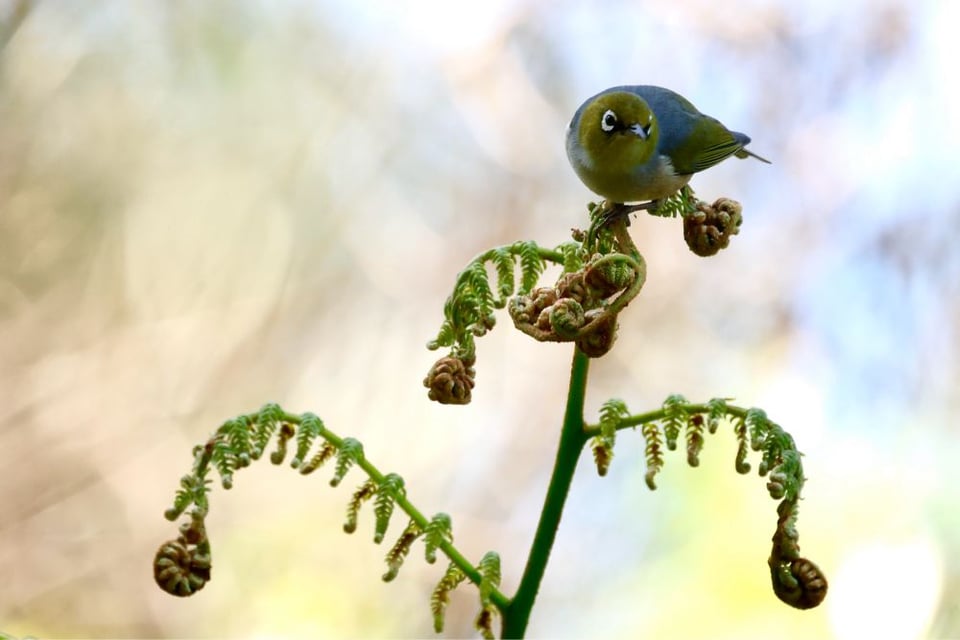
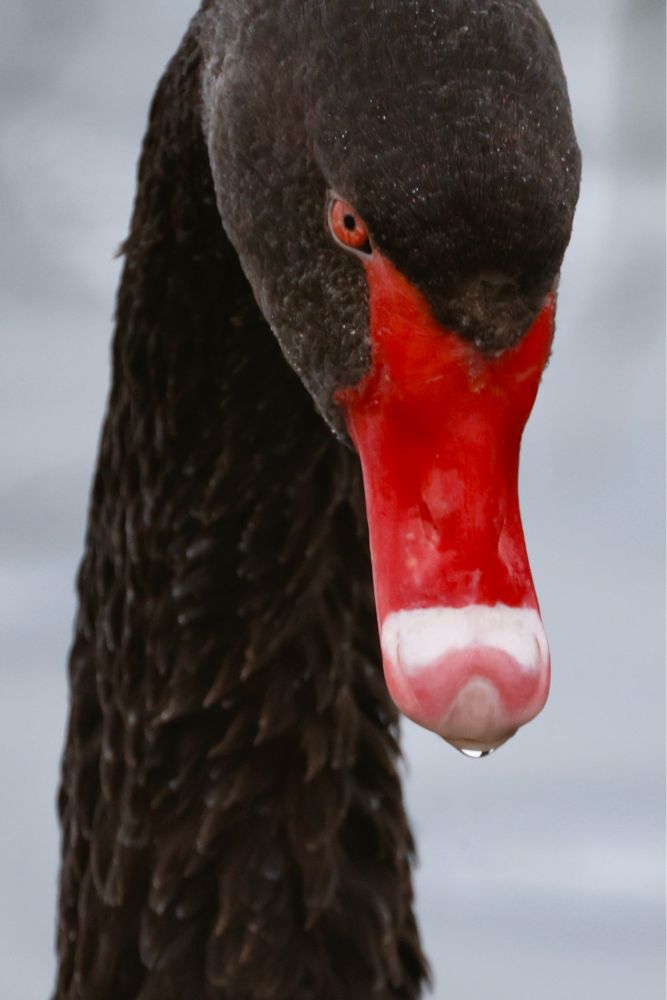
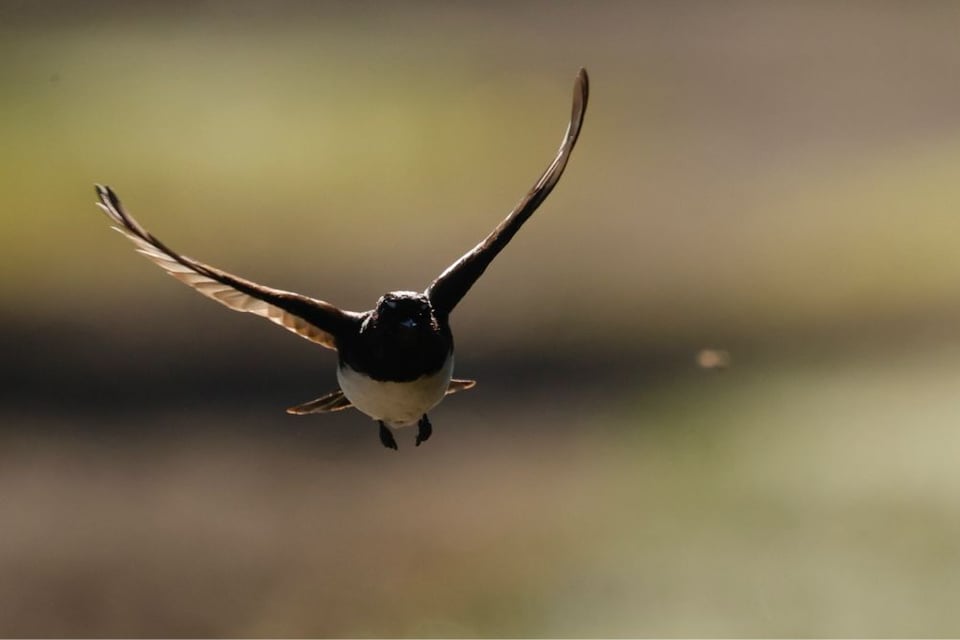
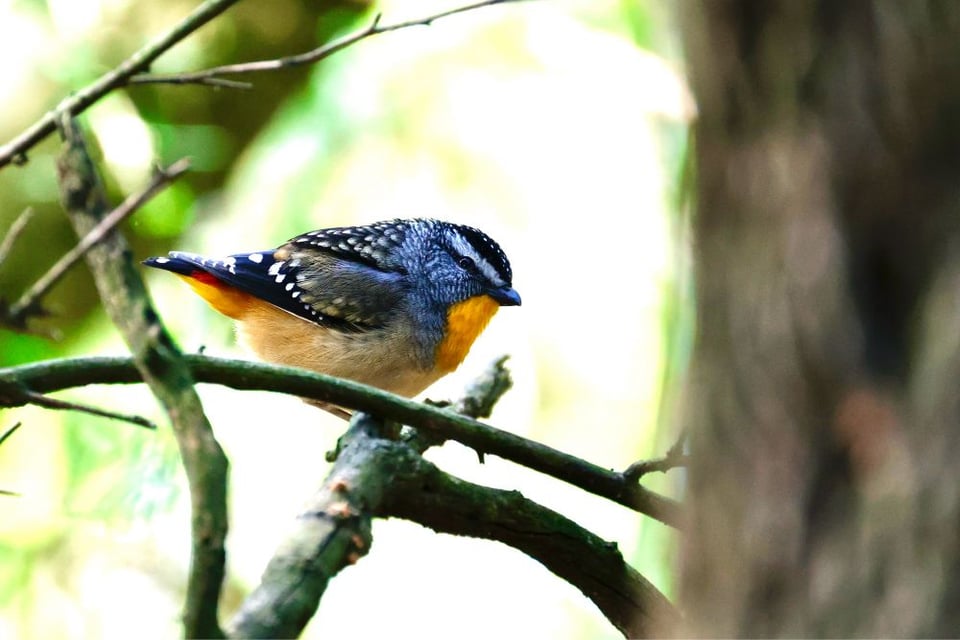
Gaza reading
These are pieces about the horrific events in Gaza and the ongoing genocide that resonated with me. I hope you find them clarifying.
We Cannot Cross Until We Carry Each Other by Arielle Angel, in which the editor-in-chief of Jewish Currents reflects on the hardest week her staff has ever had to weather.
Toward a Humane Left by Joshua Leifer, who argues that “the task of the hour” is to “hold everyone’s humanity.” (It's also worth reading the response by Gabriel Winant and the counter-response by Leifer.)
Doomsday Diaries by Sarah Aziza, about what it feels like to “stand at the edge of annihilation” or, at the very least, a few degrees from its epicenter.
The Gaza Diaries, from Ziad, a 35-year-old Palestinian writing about what it’s like on the ground. Six parts are available.
A Textbook Case of Genocide, by Raz Segal, an Israeli historian and scholar of the Holocaust and genocide, who unequivocally argues that Israel's current campaign explicitly and absolutely counts.
Explanations Are Not Excuses, in which Sarah Schulman cuts through the “manufactured consent”
Have We Learned Nothing? by David Klion, who dissects the comparison to 9/11 in detail.
Judaism Can’t Justify What Israel Is Doing by Abraham Josephine Riesman and SI Rosenbaum, on the concept of pikuach nefesh.
The Humanitarian Catastrophe in Gaza, in which Isaac Chotiner insightfully interviews Sari Bashi, the program director at Human Rights Watch.
Speech and Speechlessness by Talia Lavin, about “the compulsion to speak about things we can't change, the confusion between posting and doing, the emptiness of meaning that pushes us to silence”.
Other good pieces
Lindsay Ryan on making sense of her mother's decision to die. A wrenching, thoughtful piece about an impossible subject. Lindsay is a friend, and a bottomless well of light and compassion. I know writing this was hard; living through it much more so. I hope people read it in kindness.
Ozempic and other weight-loss drugs can’t fix what our culture has broken, argues Tressie McMillan Cottom
Caster Semenya, in her own words
Tat Bellamy-Walker writes about a family that fled anti-trans legislation in Texas, while Mike Hixenbaugh and Antonia Hylton report on what teachers who are trying to do right by trans kids are facing.
Your sweaters are now terrible and Amanda Mull explains why.
Things I would have included in An Immense World had they been published at the time: Albatrosses listen to the voice of the sea to navigate; and solar storms can muddle bird migrations
The climate change data are telling us something new, argues climate scientist Zeke Hausfather
We need a long COVID moonshot, write Lisa McCorkell and Michael Peluso
Book recommendations
The Last Fire Season, by Manjula Martin (out Jan 2024). Through her soulful and poignant prose, Martin finds meaning in a time of unravelling, and agency at a moment of helplessness. She shows us how to exist through our existential crises, and lights our path through the fire.
California Against the Sea, by Rosanna Xia. Just as the coast defines the liminal world between land and sea, so too does Xia’s remarkable book exist in the overlap between development and erosion, between geological forces and human desire, between our ambitious past and our tenuous future. It’s viscerally urgent, thoroughly reported, and compellingly written—a must-read for our uncertain times.
And from previous editions:
This is How You Lose the Time War, by Amal El-Mohtar and Max Gladstone
All This Could Be Different, by Sarah Thankam Mathews
How Infrastructure Works, by Deb Chachra
Our Moon, by Rebecca Boyle
Future speaking events
Come say hi; please wear a mask
Oct 28 - Massachusetts ME/CFS and FM Association Annual Meeting, virtual. I’ll be talking about my long COVID and ME/CFS reporting.
Nov 8 – USC Delta Murphy Lecture at Los Angeles, California. I’ll be talking about An Immense World
Nov 30 – Friends of the Hennepin County Library at Hopkins, Minnesota. I’ll be talking about An Immense World
Feb 9 & 10 - Newport Beach Public Library Foundation at Newport Beach, California. I’ll be talking about An Immense World
Feb 13 - Lenoir-Rhyne University at Hickory, North Carolina. I’ll be talking about An Immense World
Feb 15 - Transylvania University at Lexington, Kentucky. I’ll be talking about An Immense World
That's it for this week.
I know I said I would announce my third book in this newsletter but as previously noted, I am jetlag. More soon.
As always, this newsletter is free, but you can choose to pay a monthly subscription (at whatever level you set) if you'd like to support my work.
Stay safe.
E